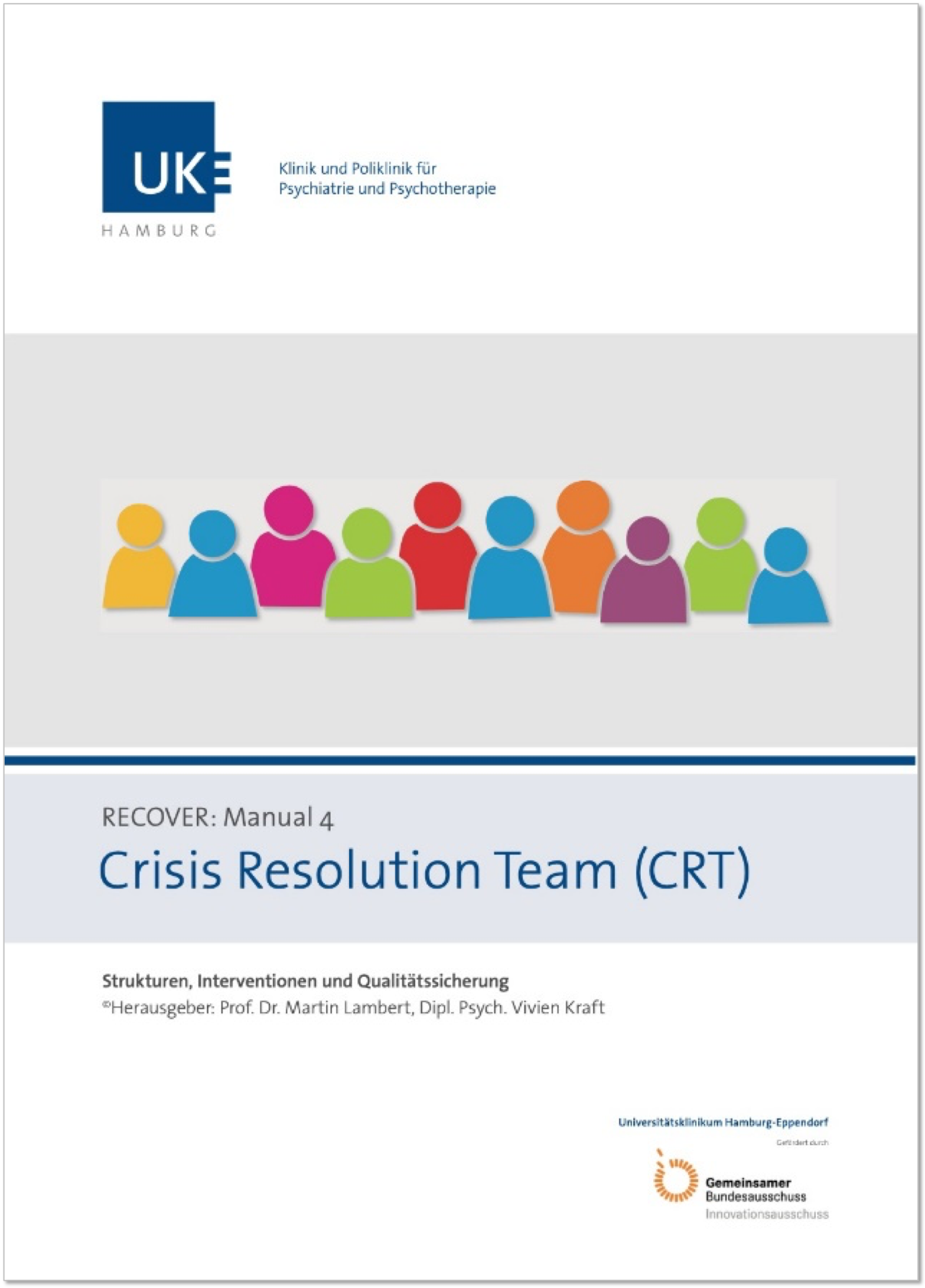SAs part of the RECOVER model, the University Medical Centre Hamburg-Eppendorf has implemented the mental healthcare model ’Crisis Resolution Team (CRT)’. CRT includes short-term assertive acute treatment. CRT is defined as a “specialist, multi- professional, and, if necessary, interdisciplinary team with the task of providing temporary acute treatment at home for patients in acute phases of mental illness”.

Lambert M, Kraft V (2017) Manual 4: Evidence-based Implementation, Certification and Auditing of Crisis Resolution Teams (CRTs); Last accessed: WWW.RECOVER-HAMBURG.DE/PUBLIKATIONEN (accessed July 16, 2018)
SAs part of the RECOVER model, the University Medical Center Hamburg has implemented the mental health care model ’Crisis Resolution Team (CRT)’. CRT includes short-term assertive acute treatment. CRT is defined as a “specialist, multi- professional and, if necessary, interdisciplinary team with the task of providing temporary acute treatment at home for patients in acute phases of mental illness”.

Lambert M, Kraft V (2017) Manual 4: Evidence-based Implementation, Certification and Auditing of Crisis Resolution Teams (CRTs); Last accessed: WWW.RECOVER-HAMBURG.DE/PUBLIKATIONEN (accessed July 16, 2018)